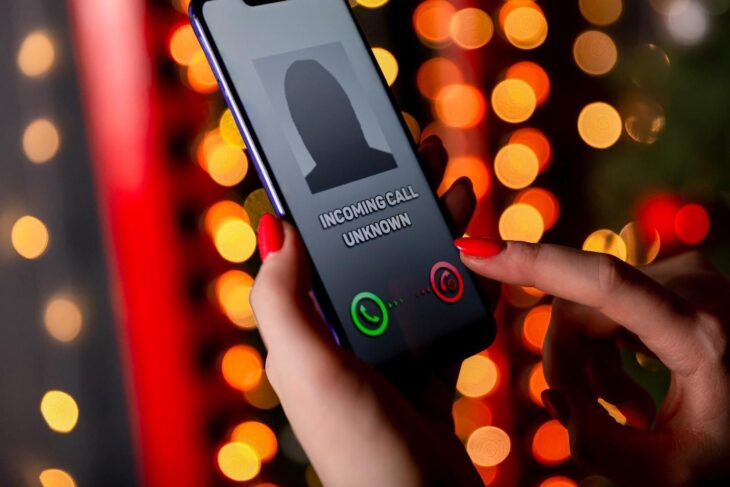Scams are everywhere: online and in your email, by phone or text, and even face-to-face. The reason that scams continue to happen? Because they keep working. People keep falling for them and giving fraudsters money and/or sensitive personal information. For that, scams are not likely to go away anytime soon.
While you may not be able to stop scams from happening altogether, you can at least make sure that you don’t fall victim to one. The variety of scams out there may be different in their details. But there are some basics that, as long as you always keep them in mind, can help you to keep yourself safe from most scams.
Email & Website Scams

Source: All About Arizona News
While helpful in so many ways, the internet’s anonymity has made it a haven for scammers. In particular, email has made it even more convenient for scammers to ask for your help to get millions of dollars from African princes to America, or to tell you about that sweepstakes you won (even though you don’t even remember entering it). All you have to do is give them your banking information or Social Security Number.
You hopefully know better than to fall for those classic scams. But email scammers (aka “phishers”) are nothing if not adaptable. Next to those clumsier efforts to get your financial information, there are other more sophisticated approaches. You may get official-looking communications from your bank, your boss, or the government. However, the links in the text of such emails actually lead to spoofed websites or that load malware onto your computer.
To avoid falling victim to email phishing scams, hover your cursor over links to see if they go to legitimate websites. Verify the sender’s email. And note the tone and grammar of the email itself for errors. If you’re still unsure, don’t click on anything or reply to the email. Contact the supposed sender directly to verify the legitimacy of the email.
Say you do happen to click on a link in a suspicious-looking email, and you end up on what looks like a legitimate website. But take a closer look. You could have landed on a spoofed website, one that is specially designed to look official but is actually just a copy intended to trick you into entering log-in or other private information. As with email, look for subtle errors when it comes to color, logos, or content. And check for a padlock icon next to the URL in the main search bar. Its presence shows that the site is secure, while its absence indicates the opposite.
Phone Call & Texting Scams

Photo by Burdun Iliya, courtesy of Shutterstock.com
We’ve all gotten calls or texts from phone numbers that might look familiar. But we don’t know for sure that they’re really someone we want to communicate with. Yes, it could be someone you know, or from a company with which you do business. On the other hand, it could be a scammer. These days, scammers have the ability to spoof phone numbers and text numbers. That way, especially when it comes to phone numbers, they could be calling from across the country but look like they’re calling locally.
These phone calls or texts are out to achieve much the same things as a phishing email. Scammers want money, or they want information that can get them money. This means they will try to get valuable personal or business information from you directly. Or they could trick you into giving them access to your device or network, where they can get the information or money themselves.
If you are unsure, do not answer a call or respond to a text right away. To try and verify the legitimacy of an unknown phone number, you can look it up with a reverse phone lookup. Such a tool can reveal the owner or entity that’s actually behind the phone number. Click here to try it out for yourself.
It if turns out that the caller or texter is someone or someplace you recognize, great! Otherwise, if it turns out that the number is a likely scam, you can report the number to the FCC or to any number of phone scam report sites to try and put a stop to their efforts.
In-Person Scams

Source: WorldRemit
The in-person con may not be as common as electronic scams these days. But they do still happen. In-person scammers are confident—they aren’t afraid to look you in the eye—and they set out to confuse you and pressure you with fast, persuasive talk. They may use natural disasters, sad children, or homeless animals to play off your emotions and take your money.
Before you hand over any cash or credit card info, make sure you’re giving to a legitimate charity and, especially, that the person you’re talking to is a real representative of a charity. For the former, there are a number of charity watchdog sites online; just look up the charity name to find out if it’s real and if it is effective in its mission (that is, that the majority of the money it receives actually goes towards its mission and not just operating costs). For the latter, you can contact the charity directly to confirm that the person in front of you really works for them.
Basically, when it comes to recognizing any kind of scam and steering clear of it, you just have to approach any new or unknown contacts with a healthy bit of caution. This doesn’t mean that you have to feel paranoid that everyone is out to get you. And you don’t have to be cynical. But you should be smart.
Don’t ever let anyone pressure you into giving information or money. First, take the time to perform any research and due diligence you feel is necessary to be confident and comfortable that you’re dealing with legitimate people or companies. Information is your greatest weapon against scammers and other like criminals, and it can help you to keep your hard-earned money and privacy intact.
